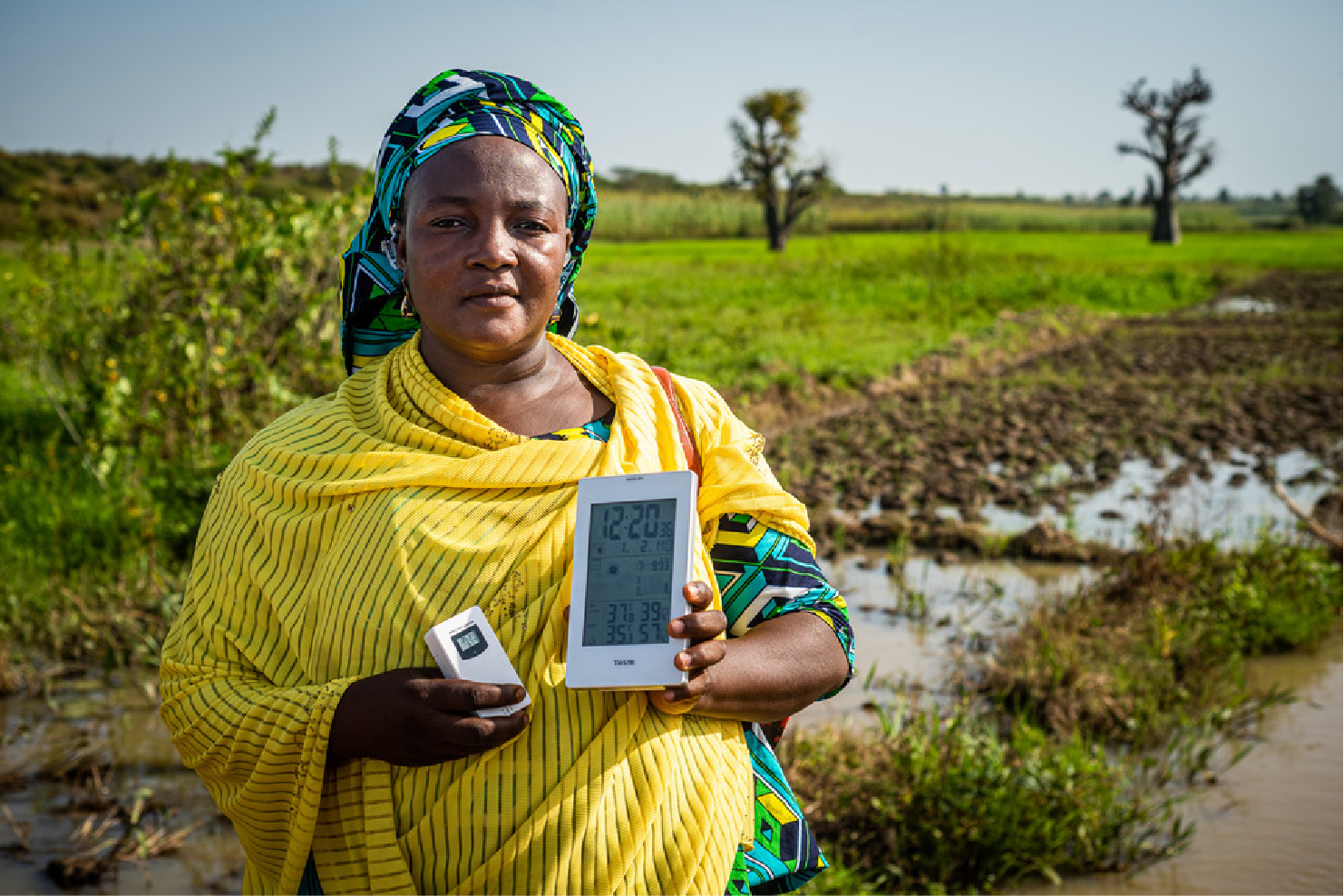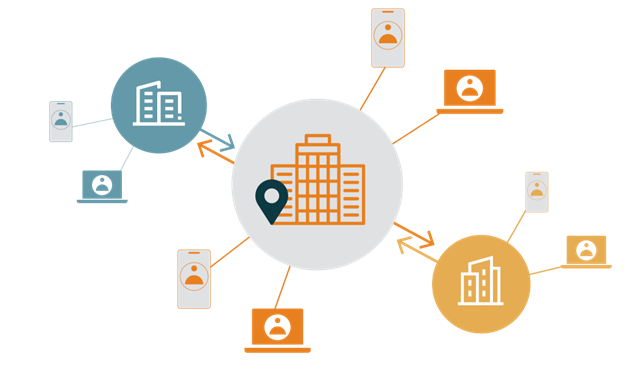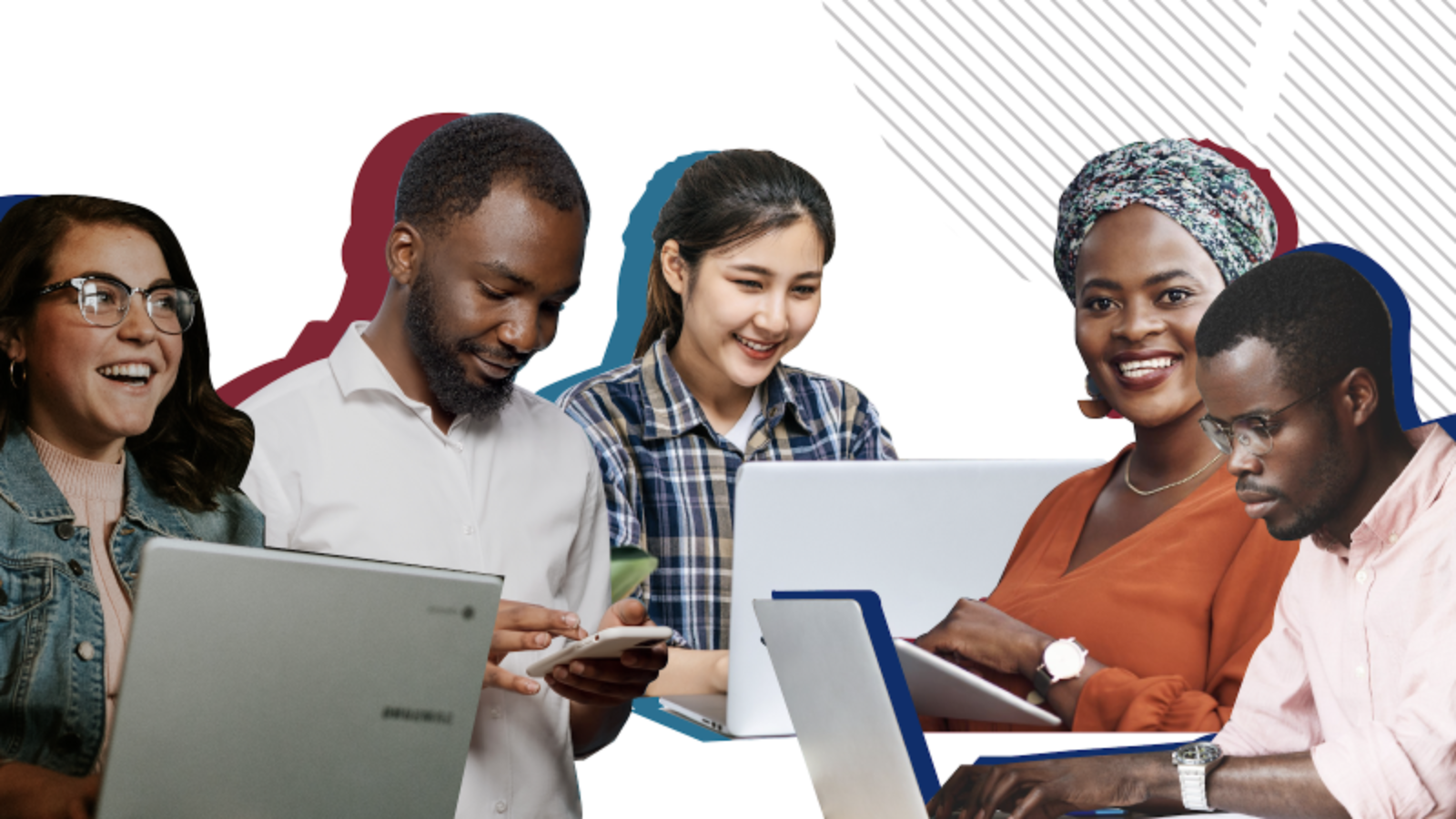By Bethany Shackelford, TechChange Senior Account Manager for Education
At TechChange, you hear us talking a lot about how we create courses across the spectrum of learning modalities–synchronous, blended, and self-paced (or asynchronous). But what is one thing we don’t talk about enough? We build content in such a way that when needs change, courses can be modified from one modality into another.
This is important for the sustainability and flexibility of any training program. Our recent and upcoming work with the International Fund for Agricultural Development (IFAD), via a contract with long-time TechChange partner Development Gateway, is a perfect example.
Since 2020, TechChange has worked with IFAD, an international financial institution and specialized United Nations agency focused on agriculture investment, to build out a comprehensive information and communications technology for development (ICT4D) training program. This ICT4D program has two main audiences: internal agency staff all over the world and smallholder farmers, who face a gap in digital tools and resources. This year, TechChange’s efforts are focused on future-proofing the existing IFAD courses so that they are fully self-paced, up to date, and contextualized for key regions.

Adapting Blended Courses to be Fully Self-Paced
Knowledge management and sharing play a crucial role in IFAD’s ICT4D strategy, which means they have invested significantly in internal resources. The ICT4Ag Digital Classroom is an example of IFAD’s commitment to advancing digital technology adoption through capacity building. The Digital Classroom Series targets mid-senior level staff within IFAD’s Project Teams and partners. Previously delivered in a blended format with TechChange facilitators, this year IFAD asked us to transition the Digital Classroom courses to an asynchronous format, allowing staff and partners to access the content during open enrollment periods.
Can do! We’re delighted to adapt these courses: the Basics of the Principles of Digital Development in Agriculture, the Basics of Digital Agriculture Ecosystems and Interoperability in Agriculture, and the Basics of Digital Rural Finance. We’re migrating the videos, activities, and coursework that make up the blended learning experience we’ve delivered for the past two years into an efficient and clear learning path for the self-directed learner.
That said, one key thing to be aware of in adult learning theory is the value of connecting with others. When we do blended learning, learners can network, chat, and problem solve with one another during the live sessions. In migrating the IFAD courses from blended to self-paced, we are ensuring peer learning by including real-life case studies that bring concepts to life and building an asynchronous discussion forum for learners to connect.
Content previously delivered in live sessions will now be shown in short 3-5 minute videos at the beginning of the modules. Our SMEs that previously helped facilitate the courses, including Peter Njuguna, Martine Koopman, and Nandini Harihareswara, are consulting on the migration to ensure that learning objectives are fully realized in the new versions. Luckily, the content has already been localized to three of the key regions in which IFAD operates: Central Asia, East and Southern Africa, Northern Africa and the Middle East, or West and Central Africa.
The updated Digital Classroom courses will be available for open enrollment from October-November of 2024 and January- February of 2025. IFAD is managing recruitment but please feel free to contact ict4ag-digitalclassroom@techchange.org if you are interested in participating.
Updating Content for New Standards- the Digital Development Principles
DIAL’s Digital Development Principles are absolutely essential material for any ICT4D curriculum. Intended for policymakers, practitioners and technologists alike, the nine principles serve as a compass for sustainable and inclusive development in today’s complex digital landscape. DIAL updated them in May of 2024 to reflect new technological realities (including AI and widely available internet), along with the elevation of themes that have risen to the top in the past ten years of the principles’ use: do no harm, radical inclusion, and the complex risks and opportunities of individual digital data. As a Digital Development practitioner myself, I’ve referred to these principles time and time again in my two years at TechChange.
The Principles are featured in a course dedicated to them: the Basics of the Principles of Digital Development in Agriculture. Since they have been updated, it’s essential that IFAD staff and partner learners understand the implications of the changes for their work with rural people to improve their food security and nutrition through sustainable agriculture.
In a rapidly advancing field like this one, content updates like this are often required. At TechChange, we’re experts at making course updates for our partners to get the most out of content that they’ve already invested in. You don’t have to start from scratch! With the IFAD digital principles example, we’re amending and adding to what they already have to make sure everything is up to date and relevant for their target audiences.
And of course, adding new content
In addition to the above changes, IFAD continues to grow their reach. One last exciting update for 2024 is the addition of a brand-new self-paced course in the Digital Advisory Support services program (DAS) which is designed for Extension Workers and other agricultural field support providers who work with farmers in Africa, Asia, and Latin America. This course will equip this vital audience with the skills to assess and implement digital tools to address farmers’ challenges and improve agricultural practices. It will be run in two month cycles this fall and winter, with IFAD managing recruitment. You can check out registration for the course here.
This relationship with IFAD has grown and flourished over time, resulting in a comprehensive library of ICT4D courses for specific audiences and needs. Our courses offer partners like IFAD cost-effective options for content delivery, and– as you can see from these examples–can be amended and refined over time to keep pace with changing needs.
If you’d like to learn more about our work with IFAD, read our case study. Or, if you’d like to talk about your learning and training needs, we’d be happy to chat.



